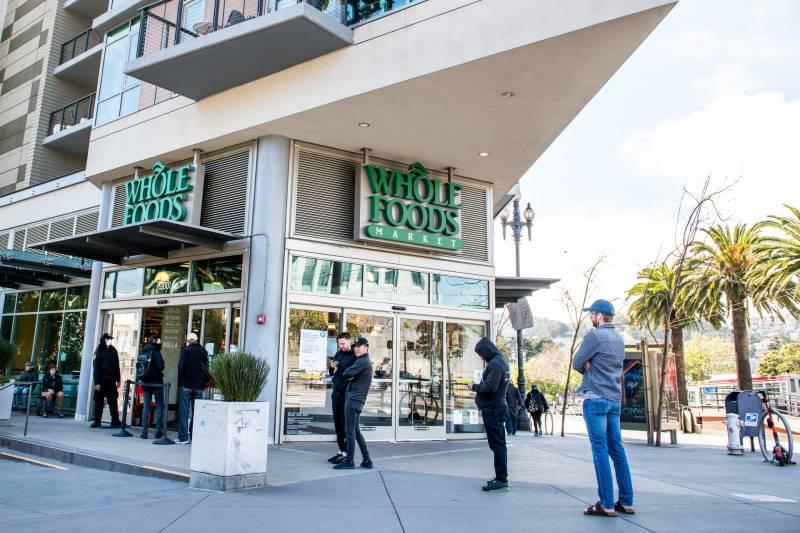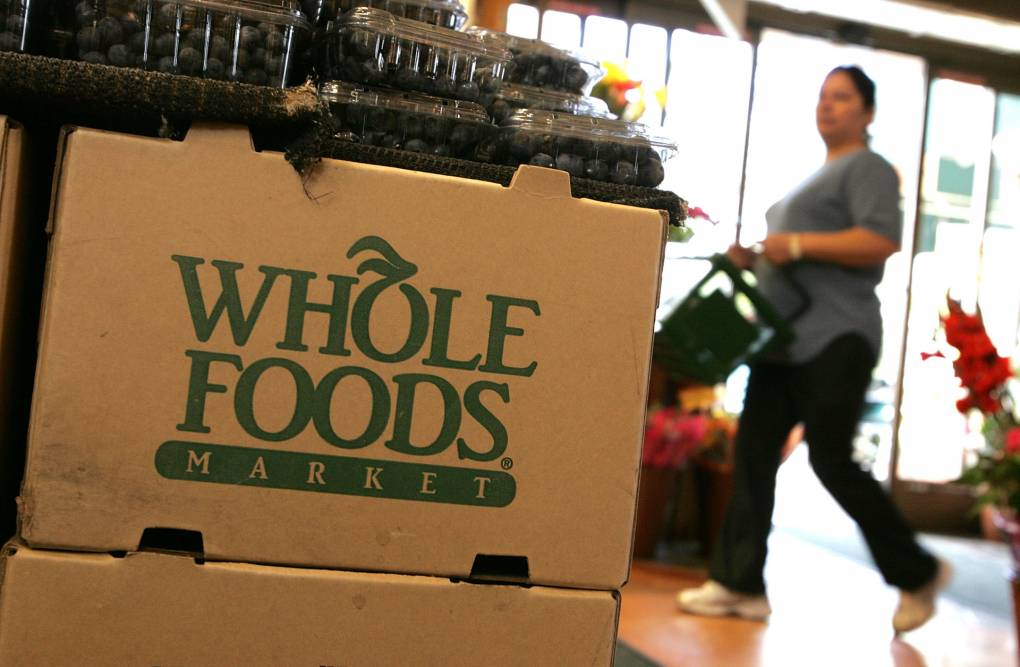An Employee's Mother: 'Now It Hit Home'
The mother of a Market Street store worker said her son was notified about the case at work on Wednesday, and that the store closed early to be cleaned that evening. KQED granted a request for anonymity made by the mother and son due to their concerns that the son's job could be in jeopardy.
“Now it hit home," she said. "Now that it actually has shown up at his store, it seems like upper-management isn't really thinking about the best interest of my child or his coworkers."
Whole Foods gives two weeks of paid time off to workers that test positive for COVID-19. Employees can also get two weeks of pay if they isolate after contact with a confirmed case – but only if the self-quarantine is recommended by Whole Foods or a health care professional, a Whole Foods spokesperson said.
"The majority of the people who work at Whole Foods live paycheck to paycheck," the worker's mother said. "If they became ill, two weeks of pay is not going to cover it. Many of them would be facing bankruptcy and worse."
She said her son doesn’t know if he had contact with the confirmed case because management did not reveal any information about the employee, so her son is continuing to show up for his shifts.
"I'm worried that they aren't being given all of the information required to truly make an informed decision about whether they risk continuing their employment there," she said.
In light of the coronavirus crisis, the company has implemented enhanced sanitation measures and a relaxed worker attendance policy, and has begun paying employees $2 more per hour. The week following the announcement of the Stanyan Street case in San Francisco, the company rolled out daily temperature screenings for their workers and Amazon Prime Now shoppers across the country.
Whole Worker, an advocacy group that describes itself as a "grassroots movement" of Whole Foods team members working to unionize, said the measures taken by the Amazon-owned company aren’t sufficient. The group spearheaded a nationwide sickout on March 31 to demand paid leave for all workers who self-quarantine, hazard pay of double wages while the crisis continues and the immediate shutdown of any store where a worker tests positive for the coronavirus.
District 8 Supervisor Rafael Mandelman, whose district covers the Market Street location, said he's concerned for the safety of the Whole Foods workers, as well as all essential workers during this time.
"While many of us are able to shelter at home and are doing everything we can to avoid putting ourselves at risk, there are so many people who are not able to do that, who are essential workers and are out every day doing the things that need to be done ... that we need to survive," he said. "And we all owe them an enormous debt of gratitude."
Mandelman said he's seen the social distancing efforts the Market Street location has implemented, but he isn't familiar with the particular steps the store has taken to protect its employees since the confirmed case was announced.
"I will say that Amazon, which owns Whole Foods, is one of the largest and most powerful corporations on the planet with hundreds of thousands of employees," Mandelman added. "And I would feel much more confident that every step had been taken to protect the health of the Whole Foods employees if those employees had been allowed to organize and unionize."
This post will be updated.

